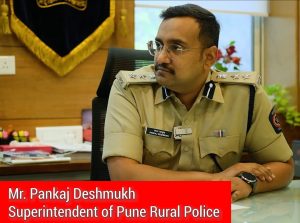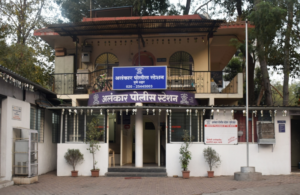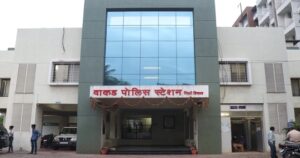We are becoming a Democracy of Communities: Palshikar
- Pune International Centre (PIC) with the Society of Civil Servants of Pune (SCSP) celebrated the Civil Services Day through intellectual exchange
Pune, April 22: India is increasingly becoming a democracy of communities rather than citizenship stated Suhas Palshikar, Professor & Political Commentator. He was speaking at the programme organised by Pune International Centre (PIC) and Society of Civil Servants of Pune to celebrate the Civil Services Day.
Palshikar delivered a lecture on ‘Democracy and Bureaucracy: An Uncomfortable Coexistence?’. Renowned actor Girish Kulkarni was the guest of honour while S. Chockalingam, Divisional Commissioner, Pune chaired the session. Prakash Magdum, General Secretary, Society of Civil Servants was also present on the dais.
While explaining the complex relationship between Democracy and Bureaucracy, Prof. Palshikar said, “We are becoming a democracy of communities, not only based on caste or religion but there are irreconcilable differences in the society and the inability to bring them together has been the factor of unrest between bureaucracy and democracy.”
He further explained that the purpose of democracy is to construct, shape and execute public interest.“Our understanding of democracy and the functioning of bureaucracy have increasingly failed at it,” he said.
He pointed at various reasons for the uncomfortable relationship between democracy and bureaucracy. He cited the theory by political thinker Max Weber and how it can be related to the situation of democracy in India. He explained the reasons such as the diminishing anonymity of the bureaucratic officers, our idea of good politicians being those who ‘get the work done’ and the increasing need to bypass the procedures of democracy by common people. Our bureaucracy is not a robust system, because it relies heavily on the capabilities and motivations of the individual bureaucrat.
“There is no doubt that democracy is about the raw expression of public sentiment or public explosion of view but channelizing those sentiments through procedures of democracy is absolutely necessary. At a certain stage democracy has only become a play of sound and fury. The more you shout, the more you will be able to accomplish rather than going with the procedures. This state makes it a challenge for bureaucracy and democracy to co-exist,” he said.
Prof. Palshikar’s address was followed by an open interaction with actor Girish Kulkarni. He highlighted his experiences as a theatre actor but raised concerns about the dying interest among people for dramatics. “Though there is a lot of democratisation in the field of performing arts, hardly anyone is interested in dramatics anymore. This is in a way a cultural malnutrition that we are facing right now. Our cultural complexion is deteriorating rapidly. We must start focusing on uplifting it,” he said.
In his remarks, Chockalingam emphasized on the need for exchange of ideas and intellect among the civil servants and officers. He said, “It is easy to berate bureaucracy and it is also easy to comment as an insider. But it is important for us to understand an outsider’s objective view point about bureaucracy and its relationship with democracy. This will help us serve the citizens better,” he concluded.
Prashant Girbane, Honorary Director, PIC delivered the vote of thanks.





